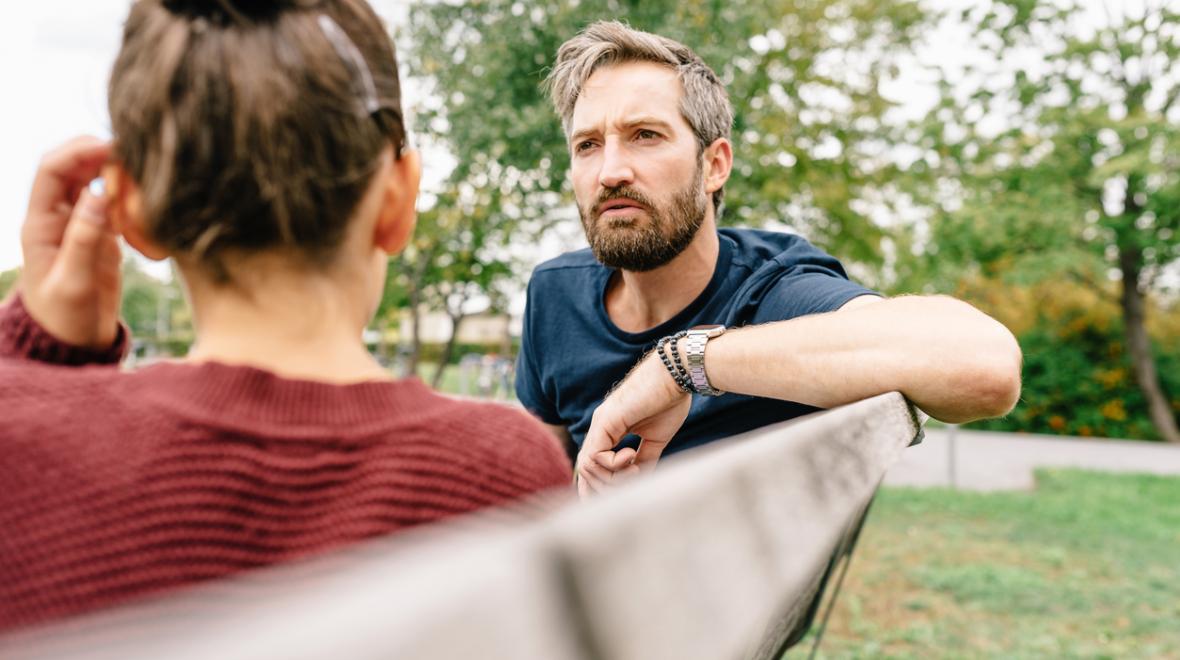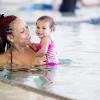
“Mom, what does rape mean?”
There are few aspects of parenting more universally terrifying than talking to kids about sex. Most parents tackle this topic gradually, trying to keep the discussion positive, informative and age-appropriate. However, it has become almost impossible to shelter our children, especially once they can read and are exposed to social media, from accounts of rape and sexual assault. As difficult as it is to talk about rape and sexual assault, it’s a critically important subject — both for boys and girls.
Statistically, most victims of rape and sexual assault are children and young adults. According to the Center for Disease Control’s National Intimate Partner and Sexual Violence Survey, female victims under 24 years-old accounted for 79 percent of the lifetime victims of rape. At least 27 percent of lifetime male rape victims are under the age of 10. The numbers of women and men who are sexually assaulted each year are nearly identical: 6,646,000 women reported suffering sexual violence, along with 6,027,000 men.
It is clear that parents must be proactive in discussing the subject with their children. But how?
Sexual education expert Amy Lang, who runs the popular website Birds+Bees+Kids, believes that children should learn the definition of the word rape by age 9 or 10, “because it’s part of our culture. They’re going to hear that word, and you do not want them looking it up.”
Lang suggests that the conversation should happen gradually, “just like sex talks, just like manners, just like everything else we talk to them about to keep them healthy."
'Yes means yes'
For very young children, Lang suggests that parents frame the conversation about rape as part of their safety and prevention discussions. As children approach their teens, the subject can be approached more frankly.
“Throwing the stats you have at them is not good, and you don’t want to scare them, but they need to understand that there are risks. The risks increase as they get older, and as they’re hanging out with older kids and feeling sexual feelings and other kids are feeling sexual feelings,” Lang says. Parents don’t have to wait until their child asks about rape before they discuss it, she notes: “Using teachable moments makes it easier, but I’m a huge advocate of bringing it up and talking about it.”
Parents who do discuss rape tend to focus on conversations about safety, and they tend to assume that girls are most at risk.
While stranger rapes do happen, according to the CDC report, 87 percent of lifetime sexual assaults are committed by intimate partners and acquaintances (commonly referred to as “date rape”), and at least 61 percent of all rapes involve drugs/alcohol, mostly used by both participants. Because men are sexually assaulted at nearly the same rate as women, it makes sense to talk to all children not just about safety, but about consent.
Focus on consent
Twenty-one-year-old Em is now a student at a prestigious East Coast university. When she was a teenager, she was in an abusive relationship that included rape. Nothing her parents had told her about rape prepared her for the fact that her abuser was also her boyfriend.
“I knew it existed, but when it happened I didn't recognize it. I wish they had told me that anything that felt wrong or that I didn't want — no matter how much I thought I loved the person — was rape,” says Em (who doesn’t want her last name used).
Lang suggests that saying “no” to an intimate partner is often the hardest part for rape victims. Parents need to “make it really clear to kids that what happens is sometimes you get in a position where things are hot and heavy, and your partner’s going to push, push, push even though you’re saying no, no, no.” She counsels parents to discuss what safe, healthy, trusting relationships look like with their children.
“If you’ve got a good relationship with your partner, and you’ve taken time to get to know them, and you understand their character, chances are less that there’s going to be a problem.”
The root of all conversations about rape should be the idea of consent. Lang prefers “yes means yes,” over the “no means no” idea. She wants young people to understand “that it needs to be ‘yes’ for her, and a ‘yes’ for him, and that if there’s no ‘yes,’ it’s not OK in terms of any kind of sexual activity. Has someone been drinking or drugging? It’s a ‘no.’ Any kind of incapacitation is an automatic ‘no.’” She wants young people to learn to “check in” with their partners, every step of the way.
Normalize the conversation
Parents also struggle over what type of information to provide their daughters versus what they should tell their sons. Jennifer Washburn, 47, from Renton, is the mother of Rachael, 22, and Jordan, 19. She remembers talking to Rachael mostly about strangers and safety when she was younger.
“I don't think that I ever brought it up as ‘consent,'” she says. She used films like Superbad as vehicles for discussion “for me to speak with Rachael about alcohol, parties and sex. We discussed how drinking too much makes you not safe. Jordan was probably about 15 also when I talked to him about alcohol and parties and not assuming that drunk girls wanted to have sex with him (even if they were saying ‘yes’).”
Everyone believes that their sons would never be capable of rape, but the reality is that some of them are.
While both children appreciated the talks they had with their mother, their perception of those conversations is not the same. Rachael, now a senior at Willamette University, says, “While I was told…to watch what I wore, how much I drank, and where I walked, my brother (to my knowledge) received none of this advice.”
“But that, right there, is the problem with how we talk to our children about rape: Everyone believes that their sons would never be capable of rape, but the reality is that some of them are,” she adds.
Jordan, a freshman at Chapman University, disagrees. “I imagine it was clear to my mother as I grew up that I would never take advantage of someone, so she never sat me down and strictly said ‘you need to never rape someone.’ She didn't need to.”
Washburn now understands that there were opportunities she missed, and her daughter is the one who has helped to educate her. “As they get older and have their own opinions, I continue to learn. For example, Rachael is currently teaching me about how society views rape and consent and how we need much better education on these matters,” Washburn says.
In reality, parents are never necessarily done talking to their kids about these issues.
“Truthfully, the more our kids know about sex and sexuality, the safer they are. An informed kid is an empowered kid, so don’t shy about these conversations about sex and sexuality,” Lang says.
The most important thing all parents can do is ensure their children understand consent. Both genders need to understand that rape can happen to them, that they can be perpetrators of sexual assault and that they have a right to consent.
“As with all the sex-talking, everything gets parents completely lit up and freaked out,” Lang says. “But the sooner we talk about it and normalize the conversation about it, and we help our kids, they’ll do better.”
Tips and talking points from Amy Lang
- Talk to young kids about prevention and boundaries: “Make sure they understand that if their intuition is telling them that something’s off, something’s off.”
- Use language about finding “help” for someone who assaults a child: “Don’t ever say [the perpetrator] will be punished, they will go to jail, because often times it’s someone the child loves or trusts, and the child doesn’t want that to happen, but they want that person to get help.”
- Talk about trust: “Someone who seems really nice, and who you really like, could still pressure you to have sex. Having the confidence to step away" from a relationship is learned. Girls, especially “need to hear that it’s okay not to be polite.”
- Watch your own language: “I think the biggest overall message is that assault and rape is never the victim’s fault. No matter what, I don’t care if she’s naked and drunk or he’s naked and drunk, it’s never their fault. So say that really clearly and also think about how you talk about this: are you judging? ‘She shouldn’t dress like that, she’s just asking for it … ’ Do you say that, and your child hears you say that? What connection is your child going to make?”
Editor's note: This article was originally published in April 2015.











